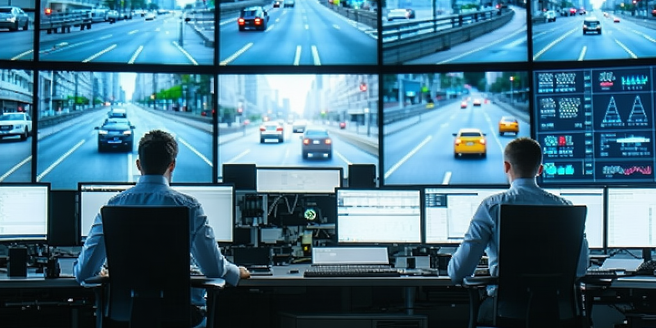Tech Solutions For Urban Planning

Innovative GIS Tools Revolutionizing City Planning
GIS tools have transformed urban planning by providing detailed spatial data analysis, which enables city planners to make informed decisions for sustainable development. These tools allow for the visualization of various geographic factors and their evolution over time, making it easier to identify areas needing development or conservation. By integrating data from multiple sources, GIS helps optimize land use, manage resources efficiently, and anticipate the impacts of urban growth. As a result, planners can create more livable, efficient, and resilient cities. In today’s dynamic world, where cities face challenges like rapid urbanization and climate change, GIS tools are indispensable. They assist in predicting trends, planning infrastructure, and ensuring a balanced approach to development that considers economic, social, and environmental aspects.
Smart City Technologies: Enhancing Urban Mobility
Smart city technologies are pivotal in enhancing urban mobility by optimizing traffic flow and reducing congestion. Through the use of advanced sensors and data analytics, these technologies offer real-time insights into traffic patterns and public transit usage. Cities can leverage this data to adjust signals dynamically, providing smoother transportation experiences. Additionally, the integration of smart parking solutions and shared mobility services contributes to reducing vehicle emissions and encouraging sustainable travel options. By fostering collaboration between city planners, technology providers, and citizens, smart technologies pave the way for more efficient and eco-friendly urban mobility solutions. As we shift towards smarter cities, adapting these technologies will be key to addressing mobility challenges effectively.
Leveraging AI for Data-Driven Urban Development
Artificial intelligence is revolutionizing urban development by providing data-driven insights that enhance decision-making. Through AI algorithms, planners can analyze vast amounts of data from various sources such as social media, satellite imagery, and sensors. This analysis aids in understanding urban dynamics, predicting infra needs, and identifying potential development sites. The use of AI in urban planning ensures that development is sustainable, efficient, and responsive to citizens’ needs. Moreover, AI facilitates real-time monitoring of urban environments, enabling quick responses to emerging challenges. By adopting AI tools, cities can optimize resources, improve quality of life, and build infrastructure that aligns with future demands.
The Role of IoT in Modern Infrastructure Management
The Internet of Things (IoT) plays a crucial role in modern infrastructure management by connecting devices and systems to enhance efficiency. The IoT enables real-time monitoring and automation of services like waste management, water supply, and energy consumption. By collecting and analyzing data, IoT solutions help reduce operational costs, improve service delivery, and extend the lifespan of infrastructure. Cities adopting IoT technologies can better manage traffic systems, optimize maintenance schedules, and provide cleaner environments. The interconnectivity offered by IoT also allows for proactive problem-solving and data sharing between different sectors, ensuring comprehensive and seamless city management.
Sustainable Urban Planning: Tech for Eco-Friendly Cities
Sustainable urban planning is critical in creating eco-friendly cities, and technology plays a pivotal role in advancing these efforts. Through the use of renewable energy sources, smart grids, and green building technologies, cities can reduce their carbon footprint and promote environmental sustainability. Moreover, urban planners can leverage data analytics to optimize resource allocation, track environmental impact, and engage communities in sustainability initiatives. The integration of technology in urban planning also supports the development of green spaces and public transportation systems, which are essential for reducing pollution and encouraging healthy, sustainable lifestyles. As cities continue to grow, the adoption of innovative tech-based solutions will be essential to achieving long-term sustainability goals.
Public Engagement Platforms: Bridging Citizens and Planners
Public engagement platforms are transforming the way citizens and planners interact, ensuring that urban development aligns with community needs. These platforms utilize online tools and apps to facilitate dialogue, gather feedback, and encourage participation in planning processes. By involving citizens in decision-making, planners can create more inclusive and democratic urban environments. Tools like online surveys, interactive maps, and social media channels allow for transparent communication and foster trust between planners and communities. As a result, development projects are more likely to address the genuine concerns and aspirations of residents. Embracing these technologies enhances civic engagement and empowers citizens to play an active role in shaping their urban landscape.